 RightsCon is an annual conference that focuses on awareness-raising, organising, and advocacy on global issues at the intersection of technology and human rights. The event is produced by the international nonprofit organization AccessNow. RightsCon participants include members of digital rights organisations, legal experts, civil society, government, and business representatives. Creative Commons, Mozilla, and the Wikimedia Foundation organized a panel discussion on the work being done to reform the European Union copyright rules...
RightsCon is an annual conference that focuses on awareness-raising, organising, and advocacy on global issues at the intersection of technology and human rights. The event is produced by the international nonprofit organization AccessNow. RightsCon participants include members of digital rights organisations, legal experts, civil society, government, and business representatives. Creative Commons, Mozilla, and the Wikimedia Foundation organized a panel discussion on the work being done to reform the European Union copyright rules...
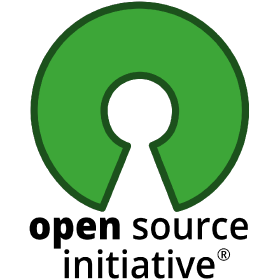 Open Source Initiative (OSI), the non-profit corporation that educates about and advocates for the importance of non-proprietary software, is hosting its 2nd Deep Dive: AI event, this one focused on Defining Open Source AI. The goal is to work toward establishing a clear and defendable definition of “Open Source AI.” OSI is bringing together global experts to establish a shared set of principles that can recreate a permissionless, pragmatic and simplified collaboration for AI practitioners, similar to what the Open Source Definition has done.
Open Source Initiative (OSI), the non-profit corporation that educates about and advocates for the importance of non-proprietary software, is hosting its 2nd Deep Dive: AI event, this one focused on Defining Open Source AI. The goal is to work toward establishing a clear and defendable definition of “Open Source AI.” OSI is bringing together global experts to establish a shared set of principles that can recreate a permissionless, pragmatic and simplified collaboration for AI practitioners, similar to what the Open Source Definition has done.
 Alangi Derick comes from Buea, Cameroon. He joined the Wikimedia movement to develop his skills in coding, and was quickly hooked by the movement’s values and its community culture, eventually becoming a staunch advocate for it in his university. As a computer science student at the time, he joined the movement a year and a half ago, and his work booked him a place at the 2016 Google Summer of Code as one of the Wikimedia Foundation’s students. Derick passed the program, helped mentor teenage participants in Google Code-in for two consecutive years, and has helped fix bugs in the MediaWiki software...
Alangi Derick comes from Buea, Cameroon. He joined the Wikimedia movement to develop his skills in coding, and was quickly hooked by the movement’s values and its community culture, eventually becoming a staunch advocate for it in his university. As a computer science student at the time, he joined the movement a year and a half ago, and his work booked him a place at the 2016 Google Summer of Code as one of the Wikimedia Foundation’s students. Derick passed the program, helped mentor teenage participants in Google Code-in for two consecutive years, and has helped fix bugs in the MediaWiki software...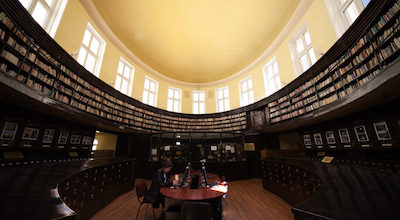 The Initiative of Open Citations (140C) announced today that science papers’ reference lists will now be accessible to anyone. As explained on their website, “citations are the links that knit together our scientific and cultural knowledge. They are primary data that provide both provenance and an explanation for how we know facts. They allow us to attribute and credit scientific contributions, and they enable the evaluation of research and its impacts. In sum, citations are the most important vehicle for the discovery, dissemination, and evaluation of all scholarly knowledge”...
The Initiative of Open Citations (140C) announced today that science papers’ reference lists will now be accessible to anyone. As explained on their website, “citations are the links that knit together our scientific and cultural knowledge. They are primary data that provide both provenance and an explanation for how we know facts. They allow us to attribute and credit scientific contributions, and they enable the evaluation of research and its impacts. In sum, citations are the most important vehicle for the discovery, dissemination, and evaluation of all scholarly knowledge”... The Open Source Initiative (OSI) continues the work of exploring complexities surrounding the development and use of artificial intelligence in Deep Dive: AI – Defining Open Source AI, with the goal of collaboratively establishing a clear and defensible definition of “Open Source AI.” OSI is bringing together global experts to establish a shared set of principles that can recreate a permissionless, pragmatic and simplified collaboration for AI practitioners, similar to what the Open Source Definition has done.
The Open Source Initiative (OSI) continues the work of exploring complexities surrounding the development and use of artificial intelligence in Deep Dive: AI – Defining Open Source AI, with the goal of collaboratively establishing a clear and defensible definition of “Open Source AI.” OSI is bringing together global experts to establish a shared set of principles that can recreate a permissionless, pragmatic and simplified collaboration for AI practitioners, similar to what the Open Source Definition has done.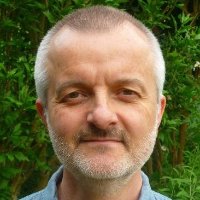 It is enormously satisfying when a good idea captures the imagination and takes off and that’s precisely what happened with the Initiative for Open Citations (I4OC) over the past 6 months. Citations are the way that researchers communicate how their work builds on and relates to the work of others and they can be used to trace how a discovery spreads and is used by researchers in different disciplines and countries. Creating a truly comprehensive map of scholarship, however, relies on having a curated machine-readable database of citation information, where the provenance of every citation is clear and reusable. With the launch of I4OC that map, and the potential for anyone to use it to explore the scholarly landscape, comes much closer...
It is enormously satisfying when a good idea captures the imagination and takes off and that’s precisely what happened with the Initiative for Open Citations (I4OC) over the past 6 months. Citations are the way that researchers communicate how their work builds on and relates to the work of others and they can be used to trace how a discovery spreads and is used by researchers in different disciplines and countries. Creating a truly comprehensive map of scholarship, however, relies on having a curated machine-readable database of citation information, where the provenance of every citation is clear and reusable. With the launch of I4OC that map, and the potential for anyone to use it to explore the scholarly landscape, comes much closer...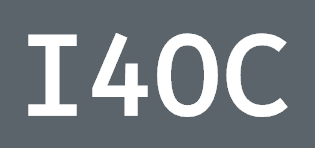 Today, Mozilla is announcing support for the Initiative for Open Citations (I4OC), an effort to make citation data from scholarly publications open and freely accessible. We’re proud to stand alongside the Wikimedia Foundation, the Public Library of Science and a network of other like-minded institutions, publishers and researchers who believe knowledge should be free from restrictions. We want to create a global, public web of citation data — one that empowers teaching, learning, innovation and progress.
Today, Mozilla is announcing support for the Initiative for Open Citations (I4OC), an effort to make citation data from scholarly publications open and freely accessible. We’re proud to stand alongside the Wikimedia Foundation, the Public Library of Science and a network of other like-minded institutions, publishers and researchers who believe knowledge should be free from restrictions. We want to create a global, public web of citation data — one that empowers teaching, learning, innovation and progress. 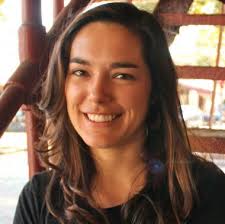 Benetech started out in the 90s without even understanding the meaning of the term open source. They just "needed an easy way to interface with different voice synthesizers" to develop readers for people who are blind and "shared the code to be helpful." Sound familiar? Opensource.com started covering stories like in 2010 and they recur more often than you might think. Stories of people sharing the code to help others—but sharing code to get help developing better code. When code is open, a community has the opportunity to form around it...
Benetech started out in the 90s without even understanding the meaning of the term open source. They just "needed an easy way to interface with different voice synthesizers" to develop readers for people who are blind and "shared the code to be helpful." Sound familiar? Opensource.com started covering stories like in 2010 and they recur more often than you might think. Stories of people sharing the code to help others—but sharing code to get help developing better code. When code is open, a community has the opportunity to form around it... Wiki Project Med Foundation and Wikimedia Switzerland have launched Chinese, Arabic, Persian, and Spanish versions of Medical Wikipedia, a free app that offers offline access to thousands of Wikipedia articles. Each app contains articles related to human anatomy, pharmacology, medicine, and sanitation. It runs on Android devices version 4.0 and up. Once the app is installed, all articles can be accessed without an internet connection...
Wiki Project Med Foundation and Wikimedia Switzerland have launched Chinese, Arabic, Persian, and Spanish versions of Medical Wikipedia, a free app that offers offline access to thousands of Wikipedia articles. Each app contains articles related to human anatomy, pharmacology, medicine, and sanitation. It runs on Android devices version 4.0 and up. Once the app is installed, all articles can be accessed without an internet connection...